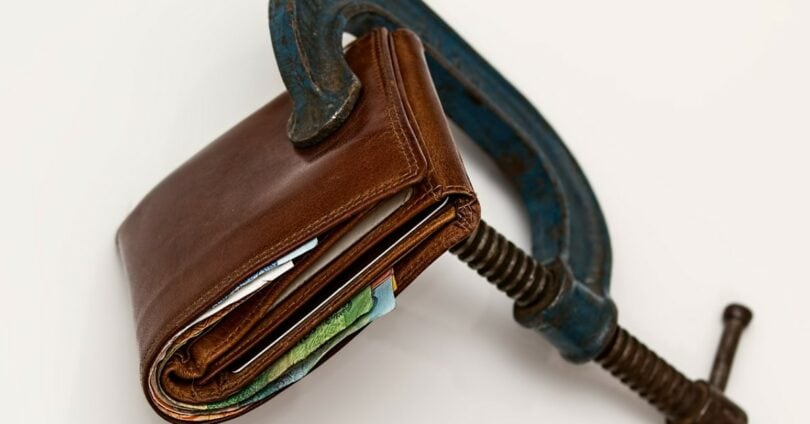You’re standing in line at your favorite coffee shop, eyeing that tempting caramel macchiato, and debating whether to treat yourself or save the money. It’s a small moment, but it’s where the journey to financial health often begins—making choices that add up over time.
Below, we will explore these everyday decisions and how they can lead you to a future where financial security is your reality.
Pay Down Debt
Debt, especially the high-interest kind, can feel like a heavy weight on your shoulders. Now’s the perfect time to break free and take charge.
Begin by tackling those troublesome high-interest debts, like those lingering credit card balances. Reducing them not only saves you money on interest but also elevates your financial status.
If you have debts scattered like confetti, consider debt consolidation or exploring personal loans from reputable money lenders. It’s akin to tidying up your financial landscape and reducing the overall interest burden you’re carrying.
Create a Realistic Budget
Budgeting might not be the most exciting topic, but it’s your key to financial freedom, much like a trusty GPS guiding you on a road trip.
Begin by calculating your monthly income. Add up your paycheck, any extra earnings from side gigs, and those dividends from your investments. Then list your monthly expenses—rent or mortgage, utilities, groceries, and yes, even those occasional treats.
With a clear picture of your monthly income and expenses, you can allocate your money sensibly. At the same time, ensure you’re setting aside some funds for savings and investments. Remember, a well-structured budget isn’t just about curbing spending; it’s about preparing for life’s unexpected twists.
Reduce Unnecessary Expenses
Who doesn’t enjoy dining out or the occasional treat? But when you’re keeping a close eye on your finances, it’s time to trim down those discretionary spending habits.
Instead of dining out every evening, why not put your culinary skills to the test and cook at home? Not only will this save you money, but you might also discover a hidden talent for cooking.
When making financially responsible choices, it’s essential to view big-ticket items like a car or a house as long-term rewards that can be achieved through prudent financial planning. Building a solid credit score is a crucial step towards realizing these aspirations and securing a brighter financial future.
Build an Emergency Fund
Life is full of surprises, and unfortunately, not all of them are enjoyable. That’s where your financial lifesaver, the emergency fund, comes into play. This is your secret stash for those unexpected expenses—unexpected medical bills, sudden car repairs, or a job hiccup. It ideally covers three to six months of living expenses.
With an emergency fund, you won’t need to resort to high-interest loans or max out your credit cards. It’s there to catch you when you need it most.
Invest Wisely
Growing your wealth doesn’t have to be a complex puzzle. There are numerous options out there, ranging from ultra-safe to more adventurous ventures.
Consider dipping your toes into low-risk investments like index funds or bonds. They’re like the dependable tortoise in the investment world, offering a steady return over time.
Lastly, here’s the intriguing part: strategic borrowing can sometimes be a wise move when eyeing investments with promising returns. However, always consult a trusted financial advisor before taking the plunge.
Conclusion
Staying financially fit comes down to discipline, savvy decisions, and a clear vision of your financial goals. Plus, keep in mind that licensed money lenders can be your financial partner, offering a helping hand when needed, all while keeping your well-being in check.Your financial health is your ticket to financial freedom, and these steps will pave the way to the stability and prosperity you’re aiming for.









